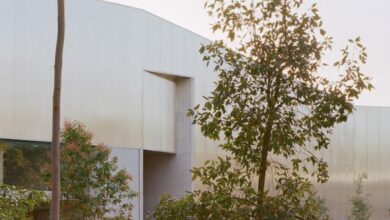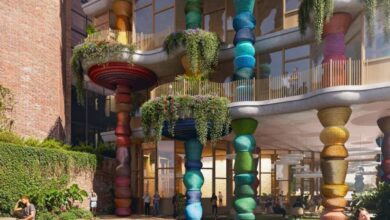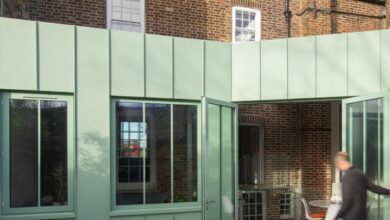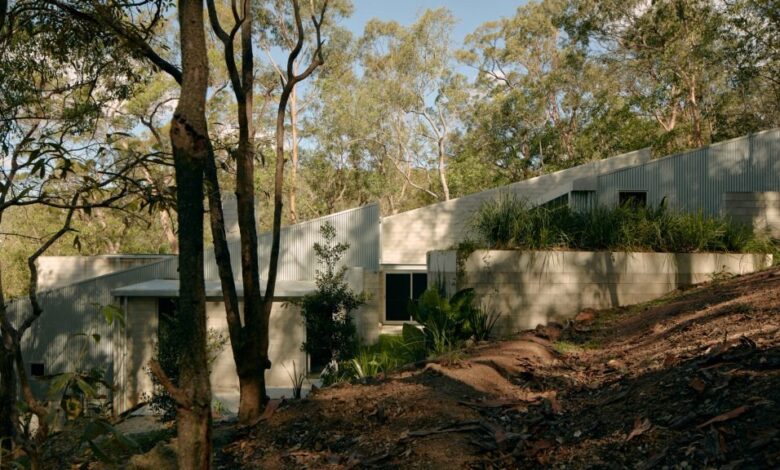
Nielsen Jenkins designs Brisbane home to withstand bushfires
[ad_1]
Australian studio Nielsen Jenkins has completed a “tough” family home with lush green courtyards protected from extreme bushfires by high blockwork walls.
Mt Coot-Tha House sits on a challenging site characterised by a steep slope at the foot of Mt Coot-Tha, in the suburb Brisbane of Bardon.
Faced with the requirements of the second-highest bushfire attack level (BAL40), the local studio designed the home as a series of low, sloping units linked by a triple-height, “civic-scaled” staircase block that steps up the forested site.
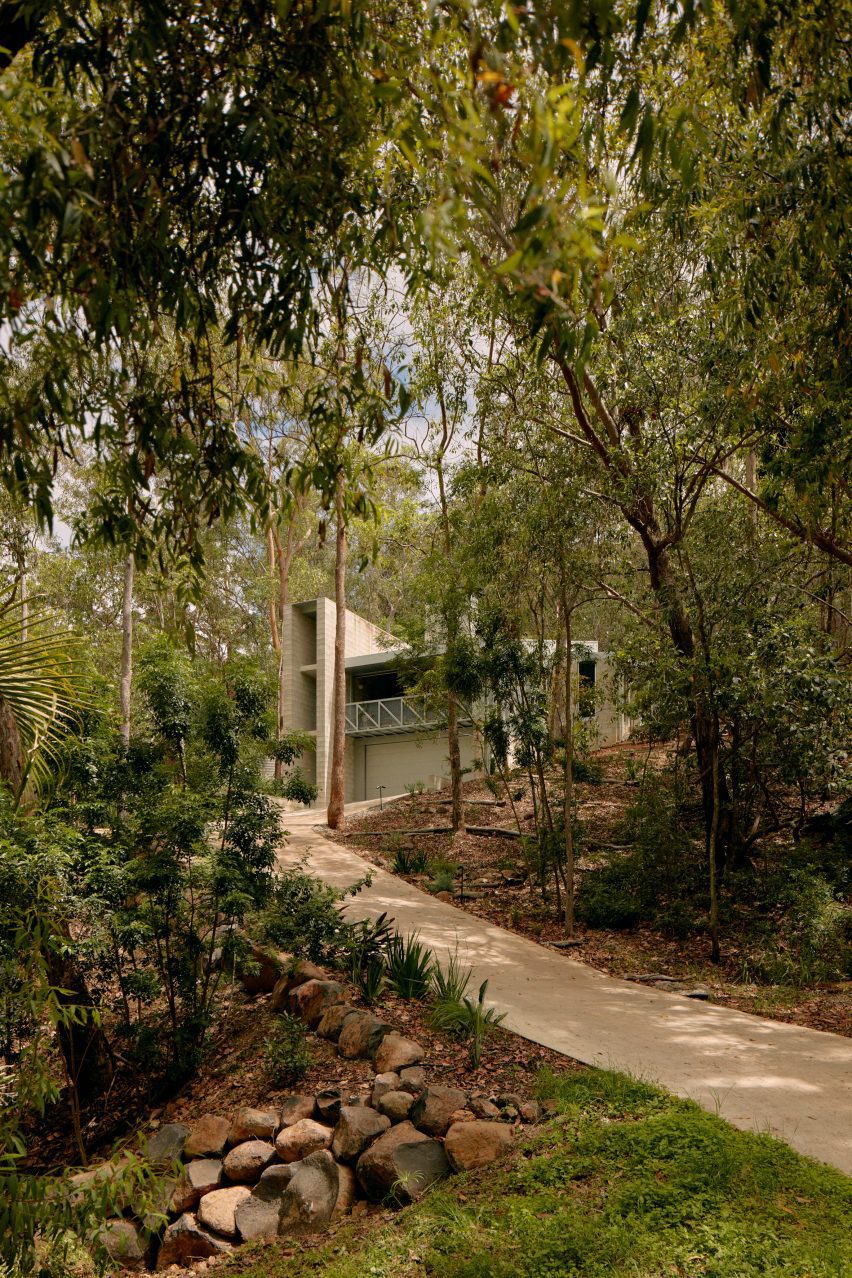
“An efficient stairway axis at the scale of the gum forest runs directly into the contour, and an informal meandering path across the plan allows for functional plateaus or occupiable contours,” Nielsen Jenkins explained.
This layout provides a garage at ground floor level, a large living, dining and kitchen area on the first floor and an area for the main bedrooms on the second floor.
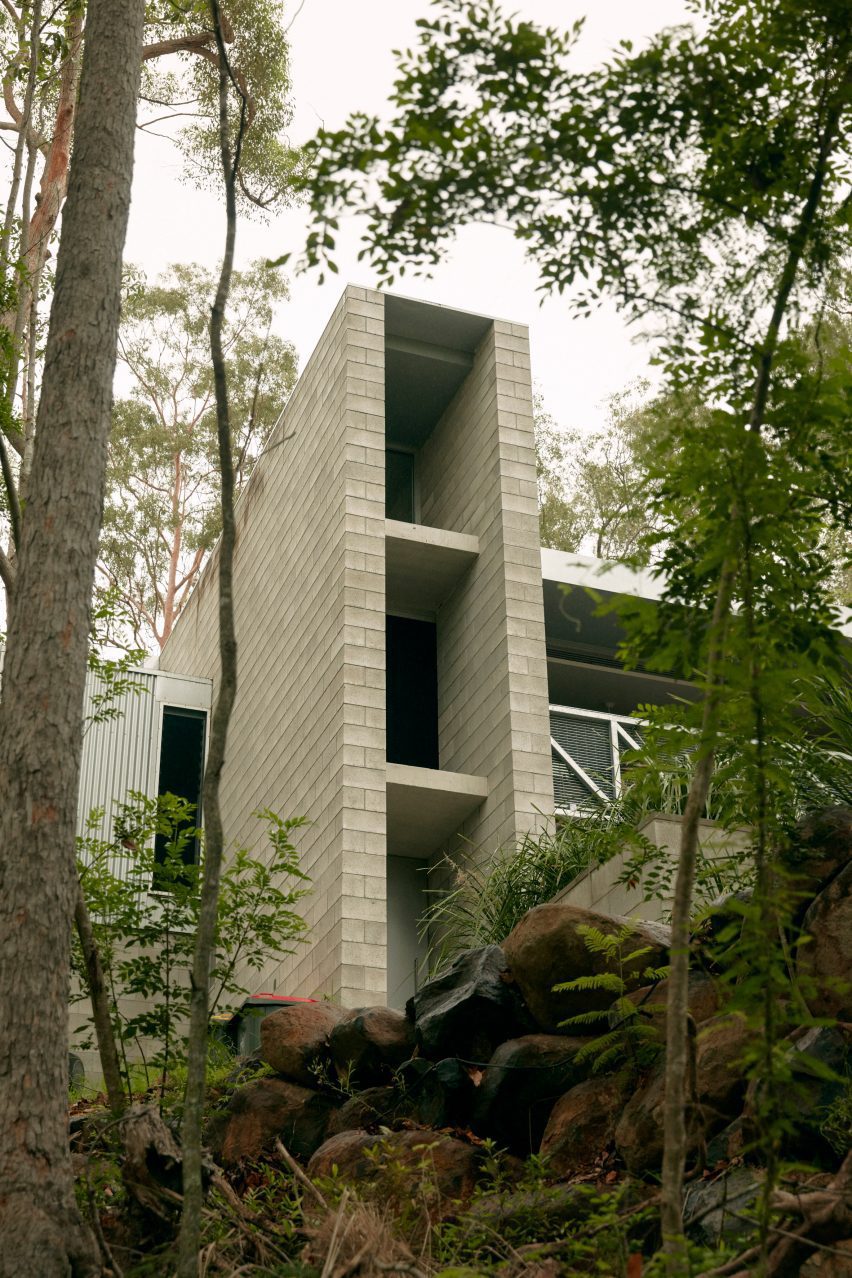
Due to the steepness of the slope, the first floor features a series of smaller level changes, stepping up from a living area and balcony towards a kitchen overlooked by a large internal courtyard.
“These smaller sectional shifts allow a grounded courtyard space adjacent to the living area of the house becomes a kind of ‘village green’ around which the rituals of daily life are lived,” described the studio.
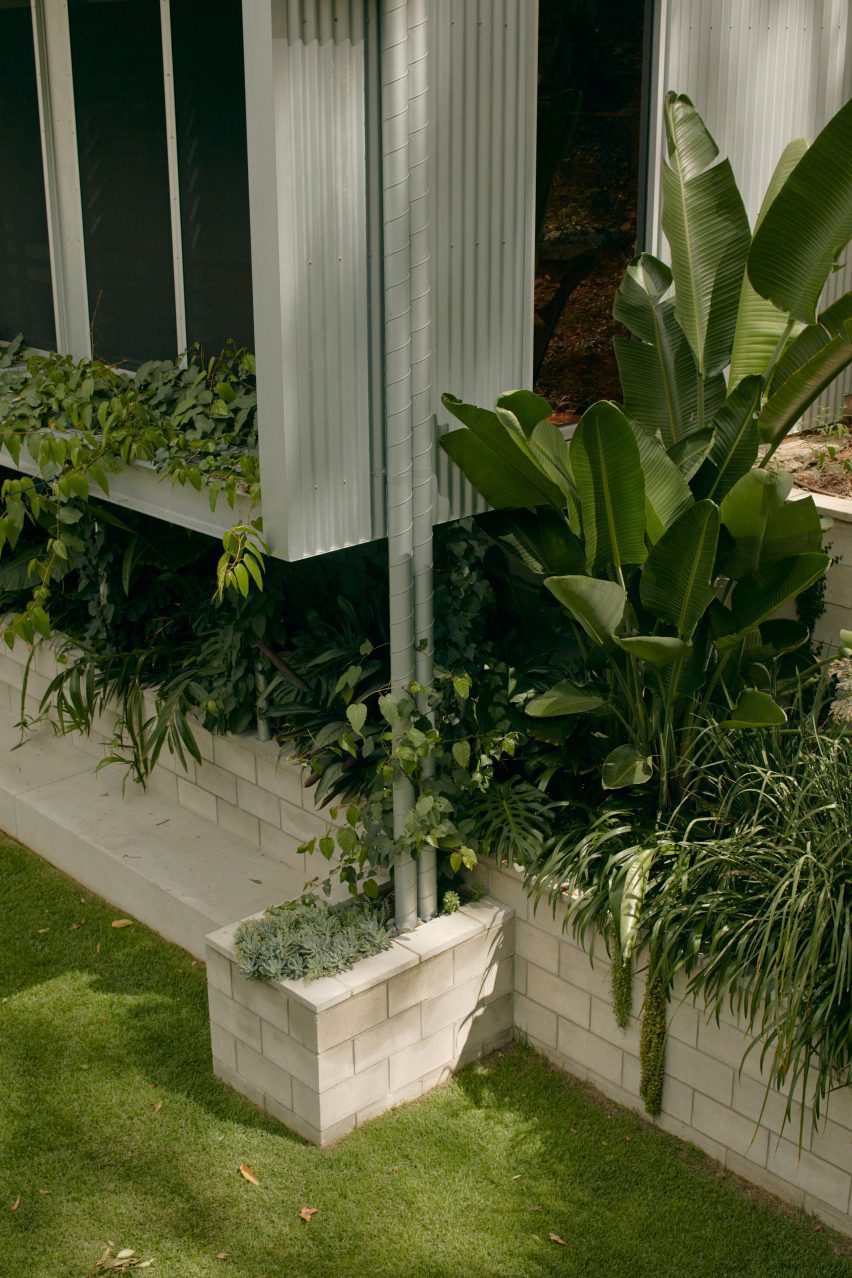
The sloping rooflines on each block follow the slope of the site upwards, each clad with corrugated metal atop a blockwork base.
All of these material choices, as well as those in the interior, were made in accordance with the BAL40 rating, which also necessitated that the gaps around openings be no greater than three millimetres.
“Robust and prosaic materials have been detailed in a manner which will require no maintenance moving forward, and will let the building continue to settle into the hill over time,” explained Nielsen Jenkins.
Internally the exposed blockwork of the central staircase form is contrasted by white walls and wooden floors and furniture.
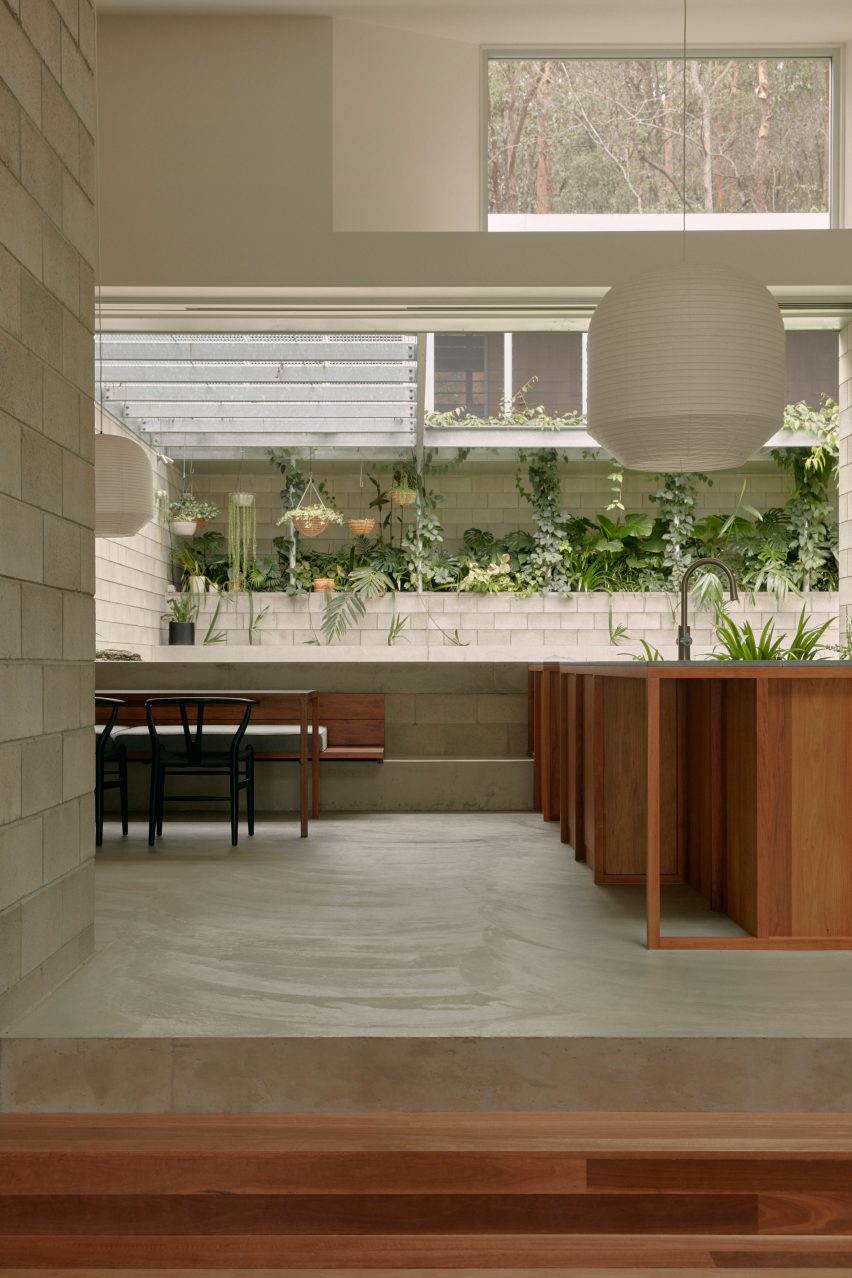
Taking advantage of the frequent changes in level, a mix of high panoramic windows, skylights and carefully-framed openings aim to capture the feeling of “leaning back” to look at the forest. The apertures are aligned with the tree trunks on the lower levels and the canopy on the upper level.
Around the perimeter of the house a series of “wet walls” have been pulled away to deal with overland water flow, doubling as small, flat courtyard areas that mimic clearings in the densely vegetated forest.
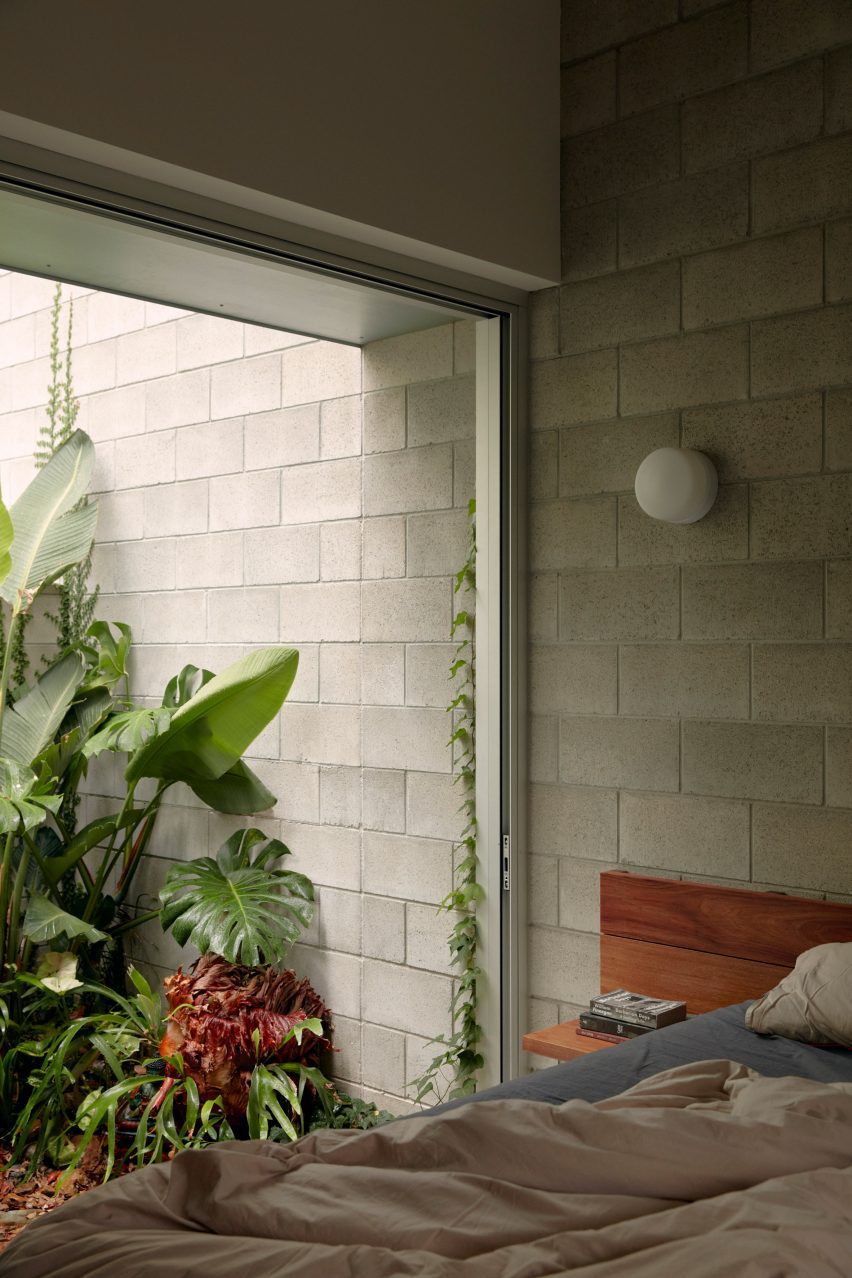
Mt Coot-Tha home was recently longlisted in the rural house category of this year’s Dezeen Awards.
Other nominated projects include a cave-like house by Mold Architects that’s embedded into a hill overlooking the Mediterranean.
The photography is by Tom Ross.
[ad_2]


